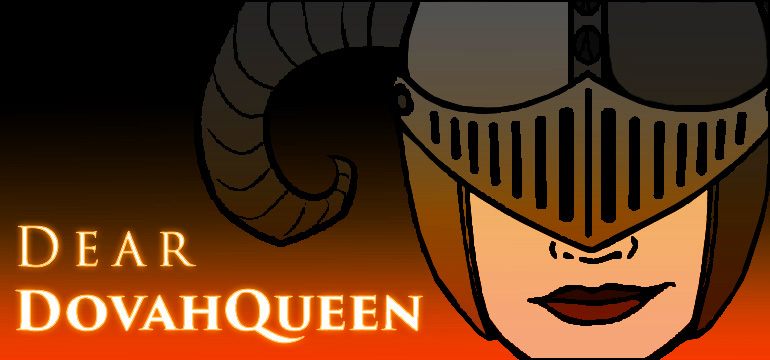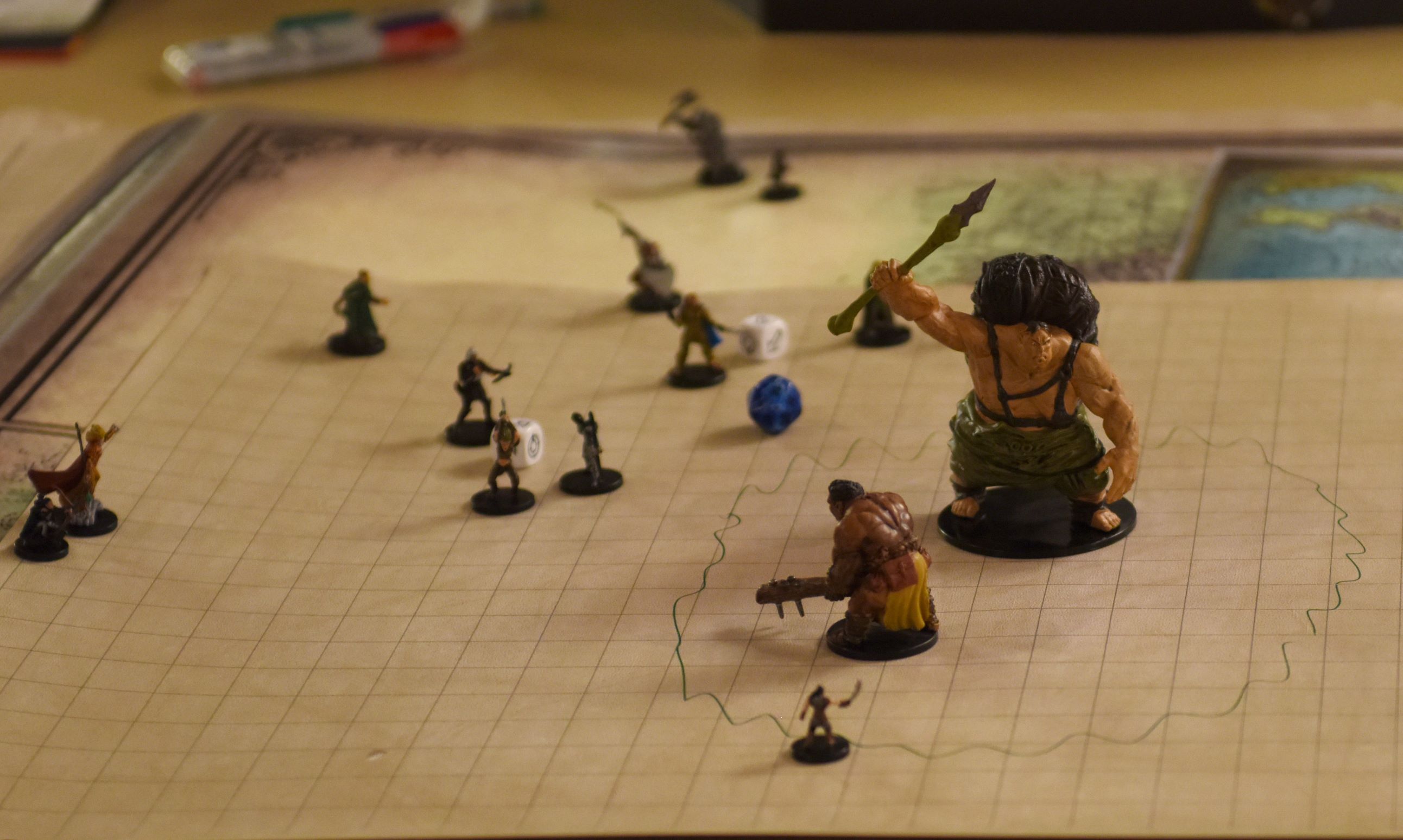Everyone who comes to the game table does so to have fun, but it’s not always easy for some players to participate as much as others. Today, we answer a question about how to help a shy player speak up.
Dear DovahQueen: A gamer in my group mostly sits quietly during our game sessions, whether it’s a combat or an RP moment. Usually that’s fine, but sometimes things come up that force the spotlight on her, like when she was the only person who worshiped the same god as an NPC who would only talk to PCs who worship their god. Is it more rude to talk for her or to force her to roleplay more than she’s comfortable with? What can we do? – Not The Quiet One
Dear Definitely the Loud One: Participating in conversations as your character is one of the hallmarks of the game. You’re playing the role of your character which is why we even call it a role-playing game in the first place. That said, players are drawn to the table for a variety of reasons: love of genre, time spent with friends, sense of community, or just the thrill of casting your die. Sometimes you’ll get a shy player at your table for any number of those reasons, and they’re going to be as much as part of the game as anyone else. As a GM, or as a another player, I wouldn’t say it’s your job to “push” them into speaking up more so much as it is to make the shared situations more conducive to a quiet person’s ability to participate.
I definitely wouldn’t speak for her; only she knows her character intimately enough to speak from that mind. Her burden isn’t a lack of understanding so much as the capacity to comfortably communicate about it. Forcing the roleplay likewise isn’t going to do much to help her feel more comfortable either, but I do have a few things that I’d like for you to try.
We all know that a session is capable of being quite…raucous. The first thing I want you to try is keeping the group a little more controlled if they’re loud and quick on the draw. As someone with a lot of experience with shyness, nothing will keep me silent faster than a whole group of folks fighting to talk over each other. You’re going to have to strap on your GM boxing gloves to clear a quiet, comfortable path so that all of your players get to contribute; not just the loudest ones. If you’re a player, then it’s your job to help the GM get the group and situation under control. Personally, I think that’s the GM’s primary job: party-babysitter, because players are really good at forgetting that other players are sitting next to them. If you single out the quiet one, they’re just going to feel put on the spot and become more uncomfortable. Try instead singling out the one that gets into the most. Don’t scold them (participation is encouraged after all), but do let them know it’s someone else’s turn. Also, maybe try to out someone who is a little more comfortable on the spot and give them a chance to speak. This does a few things: it helps give more of the party space to contribute, and it sends a clear signal to the shy player that it’s a good and safe time to speak up without putting them on the spot.
“Alright, alright alright, quiet down! Player A (the most active one), you said your piece. Player B (not the quiet one), do you have anything you’d like to add? Does anyone else have anything that they’d like to add before we move on?”
Next, you’ll want to create situations where the quieter player can really outshine everyone else WHILE you keep a tight lid on the situation. It seems like you already had a good scenario with the NPC of a specific deity. I don’t know that the rest of the party was or was not creating an atmosphere that a shy person would’ve felt comfortable contributing in, but that’s why it’s so important to attempt to keep the reigns on your most active players. Keep these situations coming, but try to be kind of subtle about it. If the timid player feels put on the spot by the scenario, it’s not likely that they’re going to open up. As player, you can’t really control which situations come up or not. If you think that the quiet one is particularly suited to a certain task of NPC, it is ok to privately lean over and ask them if they have anything to add. The keyword there is privately, because again, we don’t want them to feel put on the spot.
Finally, and perhaps most importantly, ask them outside of the group what you can do to help them feel more comfortable. Depending on the severity of the bashfulness, they may not know. Tell them some of the ideas we’ve discussed here and ask if they’d like that, or if they think it’d help. Maybe they would prefer being “pushed” into roleplaying or being roleplayed for. Those kinds of decisions have to come from them though; I can’t be something you decide for them.
And something else to keep in mind, these kinds of personality traits are rarely something that only shows up in-game. If they’re struggling to participate at the table amongst friends, this is likely something they struggle with in the rest of their life as well. That kind of trait isn’t going to solve itself overnight and may require expertise that can’t be found at the game-table. As her friend, it’s your job to be there in whatever capacity you both are comfortable with. Have that talk with her. You may end up improving more than just the roleplaying experience of gaming group.
You can request RPG advice or send your questions by email to deardovahqueen@gmail.com or on Facebook.






